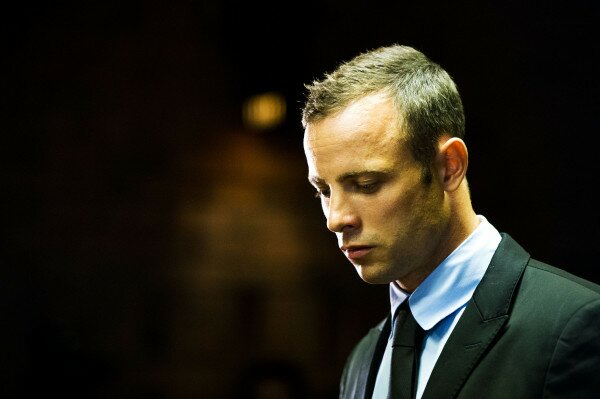
South African paralympian Oscar Pistorius. Image provided by MultiChoice.
The live broadcast and social media coverage of the Oscar Pistorius murder trial serves the important purpose of making the South African justice system accessible for the country’s citizens, by combining unbiased live reporting of a criminal trial with the surge of interest inevitably surrounding a national icon.
HumanIPO reported in February a South African judge ruled live television and sound broadcasting of the murder trial would be permitted using hanging spy cameras (subject to certain conditions), allowing arguments by broadcasters that live broadcasting would ensure unfiltered access to the trial process.
Announcing his decision, judge Dunstan Mlambo said open justice is a “noble” idea and decided the live showing of a “celebrity” trial would dispel public misconceptions about the justice system in South Africa.
Three weeks into the trial, the judge was entirely right to allow live broadcasting.
The live television coverage of the trial has opened up the courts in a way seldom achieved before, introducing the public to the reality of court proceedings, as well as showing a more practical view of the “law” – a concept which for much of the world’s population is a vague and anonymous word.
Alongside the television broadcasting, the live social media reporting by journalists at the trial is proving a channel for engagement, with many members of the public questioning terms and pieces of evidence they don’t understand – with reporters providing direct clarification.
Through the use of technology in trial reporting, the Pistorius trial is achieving the very “noble” goal of including the public in the justice system, interacting with the population, and heightening understanding and awareness of an institution which is imperative for the functioning of society, and yet is largely feared and misunderstood by the majority of people.
Live broadcasting and social media are breaking down barriers to the justice system.
The right to a fair trial is of pivotal importance as is the need to ensure witnesses are at ease and remain uninfluenced by each others’ testimony is – two arguments advanced by Pistorius’ lawyers in their objection to live reporting of the case.
However, with proper safeguards and careful applications of conditions set out by the court – such as obtaining witness consent for television coverage – the right to a fair trial can be upheld, while also promoting the goal of enhancing transparency and understanding of a justice system in a quickly developing economy and changing society; a goal of key importance to ensuring trust in the law.
Technology is the enabler of achieving this goal, and South Africa has done well to grasp the opportunity to explain its justice system and entrench trust in it throughout its population.

















